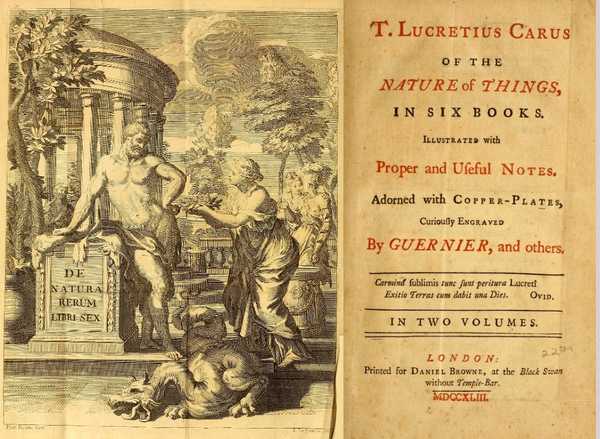

On a hunting expedition, most likely to the great monastery at Fulda, Poggio liberated a text that, Greenblatt holds, decisively shaped the evolution of the modern mind: the “De rerum natura” (On the Nature of Things), composed by the first century B.C. The unlikely hero of Greenblatt’s story is one Poggio Bracciolini, a humanist of the early 15th century who labored as a scribe at the papal court and who, in his spare time, searched for ancient texts, neglected and moldering in monastic libraries across Europe.

Thus it was with great anticipation that I opened my copy of Greenblatt’s latest “The Swerve: How the World Became Modern.” Like its forebear, this new book is indeed lively, intelligent and fun to read, but as I moved through it I grew increasingly irritated and finally exasperated by its steady insistence upon one of the most tired myths of the contemporary academy, namely, that the modern world, in all of its wonder and promise, emerged out of a long and desperate struggle with (wait for it) Roman Catholicism. In 2005, Harvard scholar Stephen Greenblatt published a wonderful book on Shakespeare called “Will in the World.” Witty, insightful and surprising, it caused thousands of people, including your humble scribe, to look at the Bard with new eyes.


 0 kommentar(er)
0 kommentar(er)
